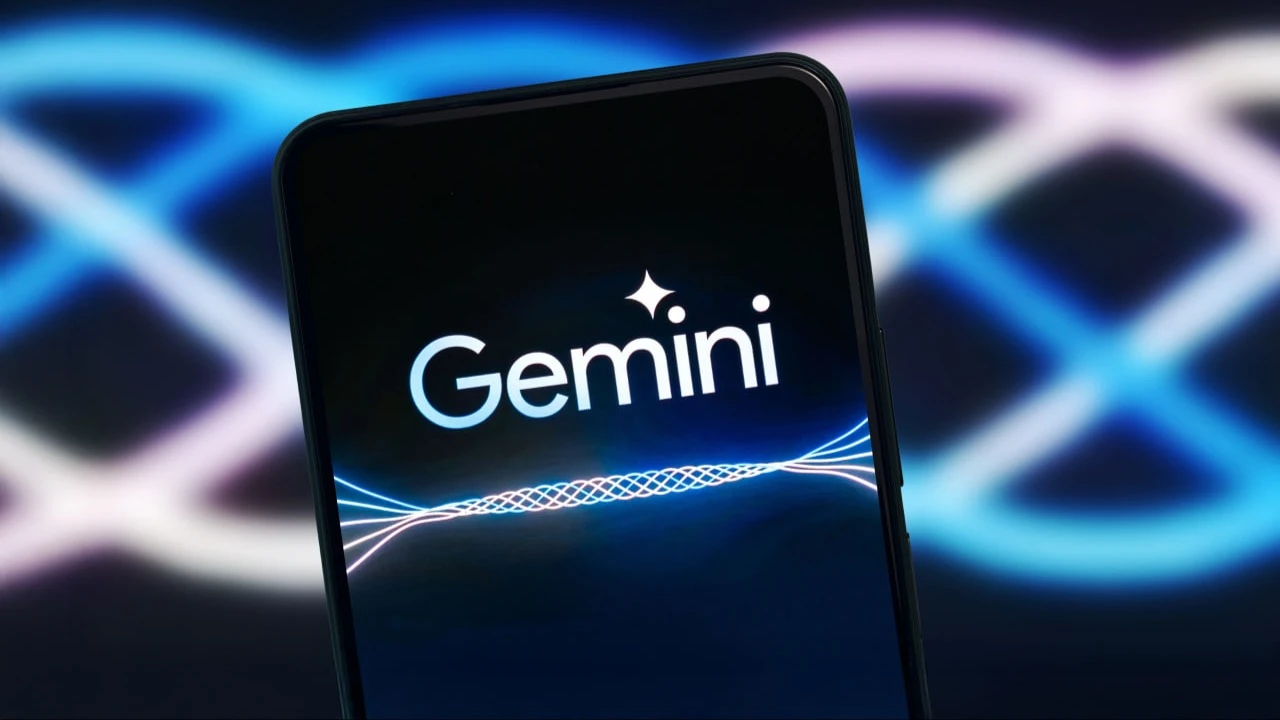Nano Banana feature puts Gemini at the top of iPhone apps. What will happen to ChatGPT?
If Gemini becomes a mainstream consumer AI app, the consequences for OpenAI would be "catastrophic," experts say

Nano Banana's new image editing tool has made AI assistant Gemini the most popular free app in the App Store. In a few weeks after its launch at the end of August, more than 20 million people used it. This result allowed Google's service to dislodge ChatGPT from the first line of the rating and showed that photo processing may become a key area in the struggle for leadership in the generative AI market. Against this background, Google's parent company Alphabet was among the companies with a capitalization of over $3 trillion, along with Nvidia, Microsoft and Apple.
Details
Over the weekend, Google's AI assistant Gemini soared to the top of the App Store, becoming the most popular free iPhone app thanks to a new image editing feature called Nano Banana, MarketWatch writes. As a result, OpenAI's ChatGPT has moved to second place in the U.S. App Store rankings.
Since launching Nano Banana on Aug. 26, Gemini has attracted 23 million users and processed 500 million images, MarketWatch notes.
What is Nano Banana
Nano Banana is a feature in Google's Gemini app for AI-assisted image editing and merging.
To use Nano Banana, users upload an original image to Gemini and set commands to modify it. They can also combine multiple photos. While AI images are often prone to inaccurate detail, when using Nano Banana, people and objects in the image do not lose their appearance even after several editing steps.
The main advantage of Nano Banana is its built-in image editing features.
"Although when it comes to creating pictures from text descriptions, I'm favoring OpenAI right now," wrote Radio Free Mobile research company founder Richard Windsor on Monday.
Will Gemini be able to supplant ChatGPT
Although ChatGPT retains the largest market share in the generative AI segment, the popularity of Nano Banana may indicate the first signs of its dominance waning, Windsor said.
Google has an advantage in computational photography - using software and AI to enhance digital images - as the company has been developing these technologies for more than a decade. This could give Google an edge over OpenAI and chatbot developer Claude Anthropic, he believes.
"The idea is that if Google can build on the success in Gemini specifically by working with photos, it will greatly increase the chances of attracting users to other features of the app," Windsor added.
The first-mover advantage has secured ChatGPT's status as the industry leader: according to Evercore ISI survey, 53% of respondents use this service. Gemini came in second place with 43%. However, Evercore ISI analyst Mark Mahaney noted in a September note that Gemini users show high levels of satisfaction, while ChatGPT does not show "significant superiority in the quality of search results," making its lead vulnerable.
Creating and editing images was the third most popular use case for chatbots after general inquiries and learning new skills, and as of May 2025, ChatGPT had a slight edge in this category, notes Evercore ISI. This indicates that a successful launch of Nano Banana could give Gemini a serious advantage: improved image processing features could attract users who would then start using Google's other AI tools as well.
According to Windsor, it's Nano Banana that could be the breakthrough that allows Gemini to pull some market share away from ChatGPT, as Google leverages expertise in an area where other developers of large language models lack competence. And if that happens and Gemini becomes the premier consumer AI application, the implications for OpenAI would be "catastrophic," as the company's "valuation and prospects depend on leadership in the consumer AI ecosystem," he said.
What about the stock
The day before, on September 15, Alphabet became the fourth company in the world with a capitalization of over $3 trillion after Nvidia, Microsoft and Apple. On Monday, the company's shares jumped 4.8 percent at one point amid news that Gemini had overtaken ChatGPT in App Store rankings, Investors Business Daily reported. At the premarket on Sept. 16, the company's stock was adding about a percent.
Alphabet shares have risen more than 70% since their April low, adding roughly $1.2 trillion to the company's capitalization.
Citigroup on September 15 raised its target price on shares of Alphabet from $225 to $280, maintaining a buy recommendation with an "above market" rating. The bank's analysts' estimate suggests the shares will grow by 11%.
According to FactSet data cited by MarketScreener, on average, analysts recommend buying Alphabet stock (Overweight rating), and the average target price is $235.5 - down 7% from current quotes.
This article was AI-translated and verified by a human editor
